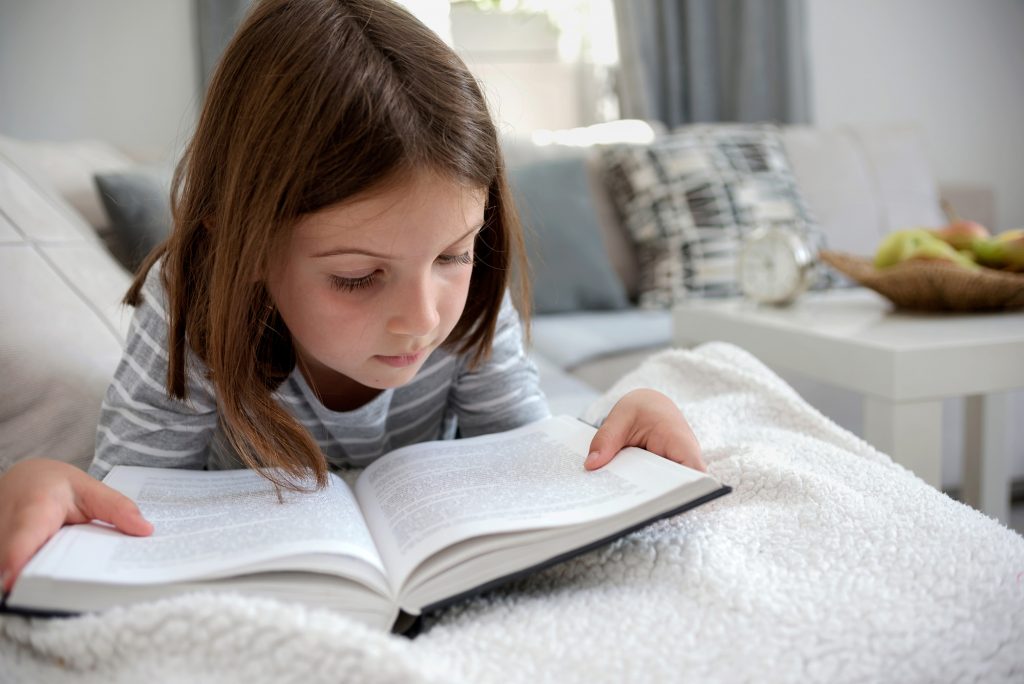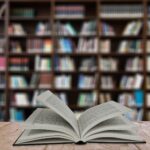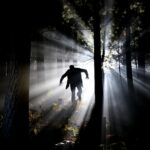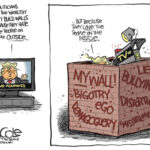BY HEIDI STEVENS, CHICAGO TRIBUNE
Inspired by an 11-year-old girl’s award-winning essay, I invited you, dear readers, to tell me the book that first made you feel like you belong.
Audrey Hall, the girl who kicked this whole thing off, chose “Blended” by Sharon Draper.
“Every week Isabella has to change houses,” Audrey wrote in her essay for the New York City Public Library contest. “Sometimes I have go to my dad’s house on the weekends too. In the text it states, ‘Every Monday I wake up in a different bed than the week before,’ and it also said, ‘Some judge who had never even met me split me in half.’
“Isabella’s mom is white and her dad is black,” Audrey wrote. “Guess what? My mom is also white and my dad is black too. That makes me multiracial or mixed. In the book it stated on page 39: ‘But the world can not see the inside of a person. What the world can see is color.’”
Here are some of yours (edited for length). A peek at the insides.
“The Namesake,” Jhumpa Lahiri: “I grew up as a first-generation child of European parents (Croatian and Italian) and the book really summed up nicely the experience of having a ‘home’ life and an ‘American’ life. We spoke Croatian at home and ate mainly European-inspired foods, which meant I jumped on any chance to eat American junk food! I brought weird lunches to school (liver sausage sandwiches and napolitanke, Croatian wafer cookies). My mom had an accent (which I loved and always wished I had), and she sometimes got English words wrong. My parents only wore dressy clothes — never jeans, T-shirts or gym shoes. We spent some summers in Europe (which I hated, because I was away from my friends). We were ‘forced’ to speak Croatian in public (how embarrassing!) Now that I’m an adult I embrace all of these things. (A summer in Europe? Yes, please!) And I’m grateful that my parents insisted on making their cultures a part of our life. I even learned to speak Italian as an adult and love the fact that I’m trilingual. Also, I got a Facebook message from a former grade school classmate who said her favorite memory of me was eating those Croatian wafer cookies my mom used to pack in my lunch!”
— Lidia Varesco Racoma
“Breathing Lessons,” Anne Tyler: “I was reading that in the midst of my marriage gone awry. All my thoughts before reading the book were that it was me, something I didn’t understand about marriage and its tedious, boring, constant struggle for happiness. While the couple was on a road trip and these thoughts were consuming the wife, I felt a relationship with her. This was me. I shall never forget how it enlightened me and spurred me to take action.”
— Francine Hunter
“Breakfast of Champions,” Kurt Vonnegut: “Partly because it touched on some of the same doubts that had been secretly stirring in me for years — doubts about my faith, my country, myself. It assured me that others had such doubts, too, that I was not alone. Also, quite unlike the often intimidatingly sophisticated prose of writers such as Henry James or the admirably erudite William F. Buckley, Vonnegut spoke in ostensibly careless, juvenile, even at times vulgar language, using words and lines that betrayed no pretense of trying to improve the minds of his readers. He met them where they were, even at the humblest level, plumbing common frustrations, anxieties and griefs with the insight of a poet, but in language that a sixth grader could understand. In this manner, the book seemed to say, ‘Do you sometimes question the value of your heritage? Feel perplexed at the world? Lost? Bewildered? If so, don’t think that’s because you’re stupid. To the contrary, you’re in good company.’”
— Michael W. Drwiega
“The Miseducation Of Cameron Post,” Emily M. Danforth: “I read a few lesbian books when I was a teenager, trying to understand myself through them. There’s the impossibly sad ‘Rubyfruit Jungle’ and many other painful stories. This was a common theme. And then I read ‘The Miseducation Of Cameron Post.’ Cam’s story is sad sometimes too, but she is lively, humorous and self-aware from a young age, without too much inner-conflict. Her personality was so much like mine, sometimes I would have to snap the book shut and disentangle myself from her. I felt seen, and I accepted myself a little more for it.”
— Marielle Magnin
“Are You There God? It’s Me, Margaret,” Judy Blume: “I remember that my three biggest milestones and what would make me ‘grown up,’ but also worried me about adolescence, were shaving, wearing a bra and getting my period. Sounds ridiculous now, but hearing Margaret going through them too made me feel normal and not alone. I remember just absorbing all the words and turning pages. Margaret’s voice was like my voice. And when I was done, even at a young age, it made me realize that books and words on pages can really be impactful and transport you into someone else’s shoes or it can act as an escape. That’s the magic of words put together in a certain order.”
— Benna Hermanson
“Charlotte’s Web,” E.B. White: “I’m a high school librarian in the Chicago suburbs. I’m also a champion of the underdog, the underprivileged and the unique. As a kid growing up in rural Pennsylvania I saw far too many animals used as property. These very animals that I felt a connection to, on a soul level, were being slaughtered. I begged to be a vegetarian. My meat-and-potatoes parents scoffed at my request and doubled down on the meat on my dinner plate. Fern was the first kindred spirit I met. She was out ridding the world of injustice before most kids were awake. She was awesome to me! I was, for so long, the lone vegetarian (later vegan) in the room. But knowing that other people would read the book and share my ideals was a comfort when nothing else was. Fern and I knew the value of life — all life. ‘Charlotte’s Web’ still resonates with me and will always be my favorite book, the one that changed my life and let me know that I wasn’t alone.”
— Cheri Price
“Motherless Daughters: The Legacy of Loss,” Hope Edelman: “My mom died of breast cancer when I was 9. My brother and I were born to a father who was 57 at the time. When mom died he never remarried. I had no consistent female, woman, wife, mom, role model growing up. When I got married in my early 20s I couldn’t understand why I wasn’t like all the other young women. I didn’t like fashion, makeup, gossip, mindless stuff in my opinion. I had no clue how to cook from scratch or how to clean and keep a house. I didn’t think babies were particularly cute, although I went on to have two of my own, both of whom are now wonderful adults. One day I saw this book on TV and I bought it. Bam! From the first page, I get it now! It’s not me! It was what happened to me. Such a heavy burden lifted, and I could finally understand. And to know that there are many more like me out there. I belonged to the motherless daughters club. I wasn’t the only one. I can still feel the weight being lifted.”
— Gerri Vaughn
“Ramona and Her Father,” Beverly Cleary: “I probably read it in third grade. Growing up, my father was often out of work. Beverly Cleary captured how much an event like that can take a family off balance. In 2010, when the movie based on Cleary’s books, ‘Ramona and Beezus,’ debuted, the Great Recession was in full swing and many families dealt with that very same situation. Decades after that book was first published, her work has the ability to make children everywhere feel like they were less alone, and that is truly a gift.”
— Melanie Kalmar
“An American Childhood,” Annie Dillard: “In one of the great beneficial coincidences in my life, the University of Notre Dame chose this book as one of the topic options for admissions essays. No book resonated with me as much, before or since. Dillard wrote about her parents sending her to school to smooth off her rough edges. She wrote, ‘I had hopes for my rough edges. I wanted to use them as a can opener, to cut myself a hole in the world’s surface, and exit through it. Would I be ground, instead, to a nub? Would they send me home, an ornament to my breed, in a jewelry bag?’ I won admission to the University of Notre Dame from the essay I wrote, and the arc of my life — previously rural and culturally limited — was forever widened and redirected. What better tome for an awkward teenage girl who loves to read and write? I learned to love my rough edges — though admittedly smoothed now in some ways, but more jagged in others — and to use them.”
— Deanna Kunze
“Quiet: The Power of Introverts in a World That Can’t Stop Talking,” Susan Cain: “At age 82, it settled a matter that had been troubling me. Beginning in 2012 I exchanged emails with a German school girl. She had delighted me by writing and introducing herself as a distant member of my father’s family. We went back and forth easily as I followed her experiences through secondary school graduation and on to university studies. By April 2018 she was planning a student trip to the U.N. and suggested I meet her there. New York did not appeal to me as a destination, but I wanted to meet her, so I did go, accompanied by a niece. I can be a fun person for those who know me. But in New York I felt disassociated, withdrawn, largely nonparticipating. Here I was in the company of someone I wanted to know better, and with someone I do know and enjoy. Why was I feeling this way? I didn’t understand. Some months later I heard about Cain’s book. Reading it explained that when introverts are put into overly stimulating environments — too crowded, too loud — and surely that includes the constant motion that is sightseeing — they can feel overwhelmed. And surely this is what happened. I always suspected I fell within an introvert spectrum and this book confirmed it. I was relieved to finally understand this experience.”
— Barbara A. Mendelsohn
“Anne Freeman’s Fabulous Traveling Funeral,” Kris Radish: “I remember walking through Target and seeing the cover. The title and the red Converse drew me in. I went home, poured a glass of wine, and spit it out reading the first line: ‘There is a hole the size of a golf ball in the right side of Katherine Givin’s black Bali bra.’ I was that woman. I was a bit of her and Annie and the rest of the characters. Kris spoke to me as a middle-aged woman. And her book about dying, but more importantly about how you should live and love life, resonated with me and empowered me to keep living life to the fullest. I’ll be reading it again this weekend!”
— Bonnie Jordan
“Notes from a Small Island” and “I’m a Stranger Here Myself,” Bill Bryson: “As a child and teenager I moved back and forth between the segregated south and Hyde Park, for two years of elementary school, Evanston for high school, then south again for college. As a young married woman I lived for 10 years in London, where our children were born, and Brussels, before returning to Chicago. Both books reflect the dislocation I have felt much of my life and somehow made me feel affirmed and understood. Now, at age 82, we have moved to Portland, Oregon, and I realize I belong here, as I have all the other places I have lived, with the possible exception of the segregated south. And even that helped form me and is part of who I am.”
— Nan Conser
“Anne of Green Gables,” Lucy Maud Montgomery: “Like Anne, I was outspoken and said whatever popped into my mind, which often led to difficulties for me as it did for her. I also had a few schemes up my sleeve and sometimes took others along with me, which would land us all in trouble. Anne was the person I wanted to be. She was my kindred spirit. My mother introduced me to ‘Anne of Green Gables’ because it was her favorite book as a child. She loved it so much that she wanted to name me Anne, but my father chose Nancy; the compromise was my middle name of Ann (but not Anne with an e). I’m very lucky that I have a real kindred spirit friend who loves Anne as much as I do. Last year, I realized a dream when I visited Prince Edward Island and did a ‘ramble’ through the woods and land where Lucy Maud Montgomery created Anne. I love Anne and what she brought to my life.”
— Nancy Castagnet
“Lonesome Dove,” Larry McMurtry: “Of course the book is better than the miniseries, which I watched and thoroughly enjoyed. My sister recommended it to me. She said have a glass of water close by because Larry McMurtry’s writing will make you thirsty. I really felt that I was along for the ride as they moved cattle across the country. I belonged in that book.”
— Tom Quain
“Five Quarters of the Orange,” Joanne Harris: “I finally understood my childhood. I had everything I needed physically, but not what I needed emotionally. I never understood that until I saw the same dynamic played out in this book. My heart broke for myself and I understood so much of my life, constantly looking for love with a great hunger. But once I had it, I didn’t trust it. Books can open vast vistas to the reader, but how surprised I was when reading fiction led me deep inside myself. I will never forget that experience, even though I have forgotten most of the book!”
— Cindy Grau
“All-of-a-Kind Family,” Sydney Taylor: “I was a voracious bookworm, but all of my favorite characters celebrated Christmas, Easter, etc. I never thought about it very much. But then in fourth grade I read ‘All-of-a-Kind Family,’ a children’s book where the family was Jewish and they celebrated Jewish holidays. That was a thrilling experience — I saw myself in a book!”
— Shelley Riskin
“First, You Cry,” Betty Rollin: “My husband walked out on me and our newborn while we were living in Brussels in 1977. Eventually, and after way too much drama, I had to return to the states. By today’s definition, we were homeless. I was very broken. I read ‘First You Cry.’ I didn’t have breast cancer, but in the last chapter she discussed realizing that in putting her life back together there would never be a phoenix rising from the ground, but it would come together. It gave me enormous hope.”
— Mary McKay
“Suffer the Little Ones,” James H. Ryan: “During my pediatric residency at Children’s Memorial Hospital (now Lurie) in the 1970s, I focused my attention on acquiring the skills and knowledge to complete the requirements for certification by the American Board of Pediatrics. There was time for little else. My wife, an avid reader, happened upon ‘Suffer the Little Ones’ by James H. Ryan, a pediatrician. After reading some of it to me, she suggested I take the time to read it myself. In it, Dr. Ryan reflected on many of his professional experiences for which he had no formal training. His description of the late-night calls, peculiar situations and challenging family dilemmas enlightened me to the more personal side of medical practice and its intangible rewards. I knew then that I belonged.”
— George W. Goodlow




